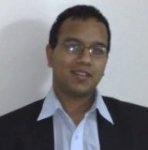Q&A: Pakistan's Nuclear Bogeyman
08 Jul, 2008 · 2615
Rekha Chakravarthi and Siddharth Ramana examine AQ Khan's disclosure of state involvement in nuclear technology transfer to North Korea
In an interview to The Guardian on 30 May 2008, Dr Abdul Qadeer Khan - regarded as the founder of Pakistan's nuclear programme - retracted his earlier confession about selling nuclear technology to Iran, North Korea and Libya, Khan regretted the confession he made in 2004 and alleged that the admission was coerced out of him by Pakistan President Pervez Musharraf.
What revelations has AQ Khan made?
Claiming that he had been made a scapegoat by the Pakistan government, the scientist said that he had confessed keeping in mind the national interest, and that he had been promised complete freedom in return, a promise that was not honoured. On 4 June 2008, in another interview with the McClatchy news organization, Khan said that he had only advised Iran and Libya on where to acquire the nuclear technology and the companies that provided the technology was European. In a new revelation, on 5 July 2008, Khan accused President Musharraf and the Pakistani army of having supervised a shipment that carried P-1 centrifuges to North Korea in 2000. According to Khan, the uranium enrichment equipment was sent from Pakistan in a North Korean plane which was loaded under the supervision of Pakistani security officials. Khan said that the army had complete knowledge of the shipment and that it had the consent of President Musharraf (Dawn, 5 July 2008).
What does the Strategic Planning Division have to say about AQ Khan's revelations?
Khan's comments are highly embarrassing for the Pakistani government which has consistently denied any foreknowledge of his proliferation activities. Pakistan fearing international censure over the latest disclosures moved quickly in responding to the remarks. Lt. Gen. Khalid Ahmed Kidwai, Director General of the Strategic Planning Division (SPD), which oversees Pakistan's nuclear arsenal, categorically denied any role of the Pakistani army or government. Khan was accused of making irresponsible statements which were against the national interest and in violation of his conditions for pardon.
He argued that solid evidence of the solitary involvement of Khan was compiled and that the evidence would be shared with a select group of persons which would include parliamentarians and judges. This selective disclosure of sensitive information can be interpreted as a means to stem the growing domestic uproar against Musharraf, under whose aegis the transfers allegedly took place, and furthermore stem the popularity of Khan, who is increasingly being viewed as a victim of pro-West policies. It would also explain why no mention was made of the long-standing demand that Khan be handed over to international investigators to reveal the truth of the proliferation network.
Why has AQ Khan chosen to reveal this information now?
Khan has previously too, told investigators that he helped North Korea design and equip facilities for making weapons-grade uranium with the knowledge of senior military commanders, including President Musharraf. He had also said that the nuclear technology transfers to Iran had been authorized by Gen. Mirza Aslam Beg, the Chief of Army Staff from 1988 to 1991 (The Washington Post, 3 February 2004). Khan's latest charges come on the heels of recent demands to end his house arrest and more importantly, is an effort to expunge his 2004 confession that he was 'solely' responsible for proliferation of nuclear technology to Iran, North Korea and Libya. In response to the criticism of his 5 July 2008 statement, Khan, clarified, that he was just elaborating what Musharraf had already published in his book In the Line of Fire, and alleged media distortion of his statement. Khan has also been increasingly vocal against Musharraf, after the party supporting the President, the PML-Q lost in the February 2008 elections, and it is perhaps to cash in on the prevalent anti-Musharraf sentiment, that Khan may have decided to reiterate that he has been made a scapegoat.
What does this mean for AQ Khan's future in Pakistan?
Khan's statements will effectively seal his fate in the upcoming trial challenging his detention. The revelations have been described as 'no less than a suicide attack against the State of Pakistan,' according to Zaid Hamid, a Pakistan defense analyst. Pakistani officials had, despite intense international pressure treated Khan with kid gloves and this was a reflection of the immense sympathy he enjoyed within Pakistan. In fact, according to the Pakistan Daily (7 July 2008), Lt. Gen. Kidwai and Lt. Gen. Ihsan-ul-Haq, the former head of the ISI, who questioned Khan in ten different 'sittings' back in 2004 always addressed Khan as 'Sir' as a sign of respect. Ironically, it was Kidwai who denied the allegations made by Khan.
Responding to criticism, the Pakistan government is contemplating releasing videotaped confessions of Khan wherein he accepted sole responsibility for the illegal transfer of nuclear material. Furthermore, the relaxed security measures, under which the revelations by Khan were made would be reviewed and measures taken to prevent a similar disclosure. However, owing to domestic popularity and national security concerns, Khan is likely to continue to elude Western interrogators, and remain under house arrest.


